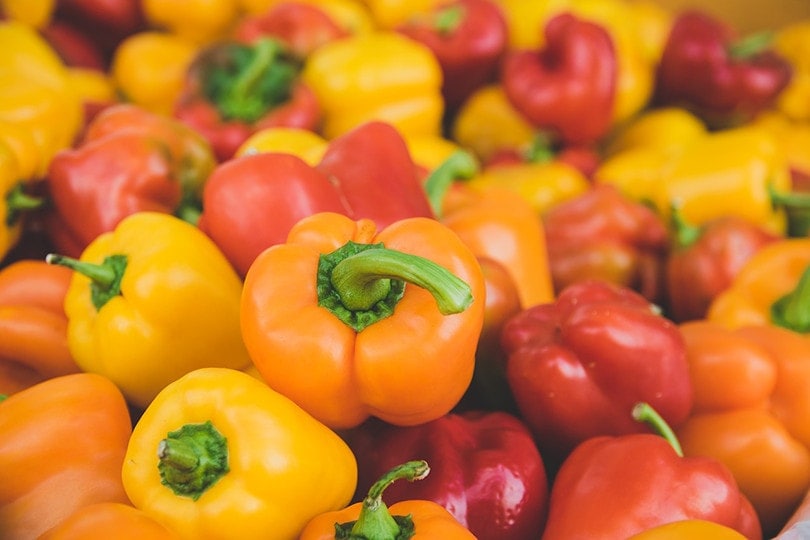Do Guinea Pigs Get Periods? Vet-Reviewed Menstrual Cycle Facts & FAQ

Updated on
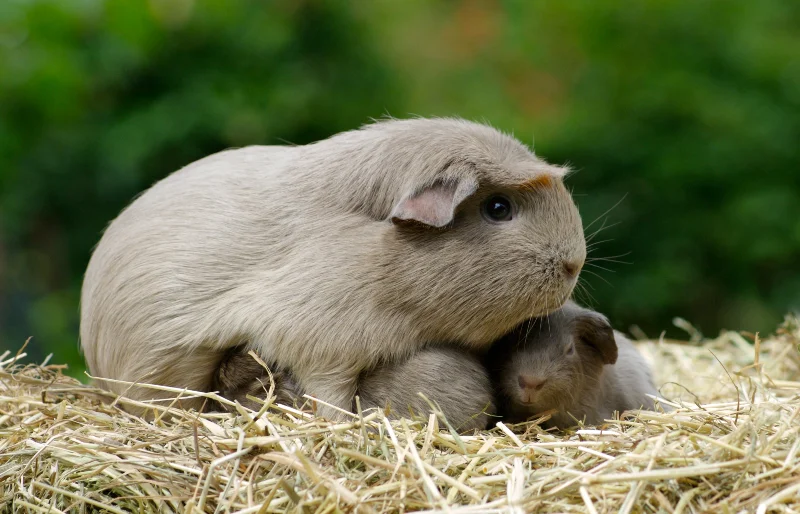
Click to Skip Ahead
Guinea Pigs are mammals, and like all female mammals, female Guinea Pigs have uteruses. Unlike people, Guinea Pigs do not menstruate or have periods. Instead, like dogs and cats, they have menstrual cycles and will go into heat several times a year.
As such, if you notice your Guinea Pig is bleeding, you should consult a vet straight away because this is not normal for the species. You should try and determine where the bleeding is coming from. Possible causes include infections of the uterus, bladder stones, urinary tract infections, and tumors. Bleeding may also occur as a result of surgery, and if your Guinea Pig is bleeding from its bottom rather than its uterus, there are a host of other potential causes.
Read on for more information about Guinea Pig menstrual cycles and the possible causes and likely treatments for bleeding.
Guinea Pig Information
Guinea Pigs are small mammals that originate in the Andes mountains. As pets, they can live up to 8 years and they are social animals which means that with regular handling they will enjoy being picked up and handled. As well as being social, Guinea Pigs are also active for around 20 hours a day, which makes them great pets, and they like to chatter, mumble, and talk to one another and to you. They do need to be kept with other Guinea Pigs to avoid loneliness, and because they are prey animals, they can get scared around other, bigger pets.
Female Guinea Pigs can start breeding from the age of about 2–3 months, but some have been known to get pregnant as young as 1 month old. Once pregnant, the gestation period of Guinea Pigs is approximately 2 months and a typical litter consists of between two and four pups, although can contain as few as one and as many as eight.
Sows do have uteruses, but they do not have cycles like humans. As such, they do not have periods which means any sign of bleeding during a heat is a bad sign and it should be investigated as soon as possible.
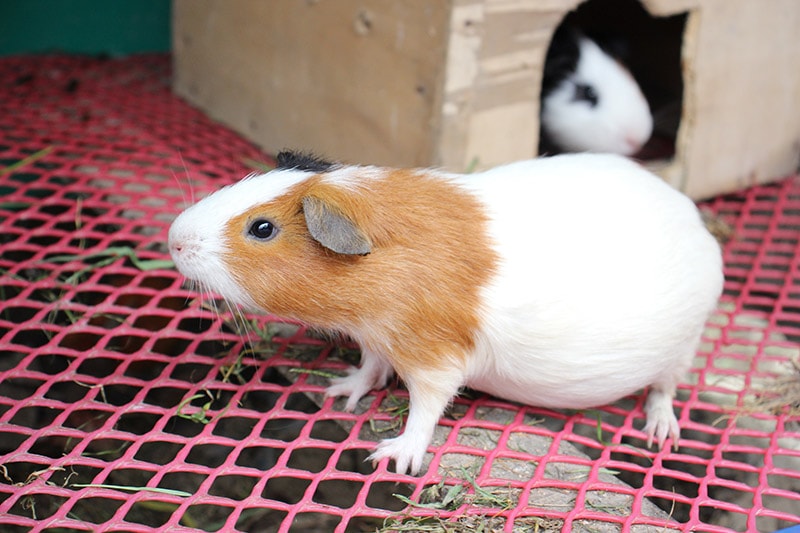
Possible Causes of Bleeding During Guinea Pig Heat Cycle
- Uterus Infection: A pyometra is a bad infection of the uterus. Because the infection has gotten so bad as to be bleeding, it generally can’t be rectified with antibiotics. Instead, your Cavie will need to be spayed and your vet will want to arrange the operation as soon as possible.
- Bladder Stones: Bladder stones are small collections of crystals that collect in the bladder. The crystals are generally made of calcium oxalate and their formation can be an indication of a diet that is too high in calcium, although they can form as a result of anything that changes the pH of your Cavie’s urine. Bladder stones may pass naturally, but if they are too large to pass through the urethra, surgery will be necessary to clear them.
- Urinary Tract Infections: Urinary Tract Infections, or UTIs, can cause blood in the urine, and it may be possible to see spots of blood even when your Guinea Pig isn’t trying to urinate. However, there are other causes of brown or reddish urine. Ideally, you should try and collect some of the urine for your vet to analyze.
- Tumors: Tumors can cause bleeding within the body and may also bleed themselves. The tumors may be cancerous or benign. Tumors should be checked as soon as possible to determine whether they are cancerous or not.
The 4 Tips to Keep Your Guinea Pig Healthy
Cavies are social animals that can struggle in extreme temperatures. They are also natural grazers that need to be eating hay or grass almost constantly to keep their teeth down to a healthy size.
1. Get Them a Friend
Guinea Pigs are social animals. In the wild, they live in groups of five to ten, and several groups can live in close proximity, which means that there might be dozens of Guinea Pigs in a single location. They rarely fight and they use the size of their group to help them survive.
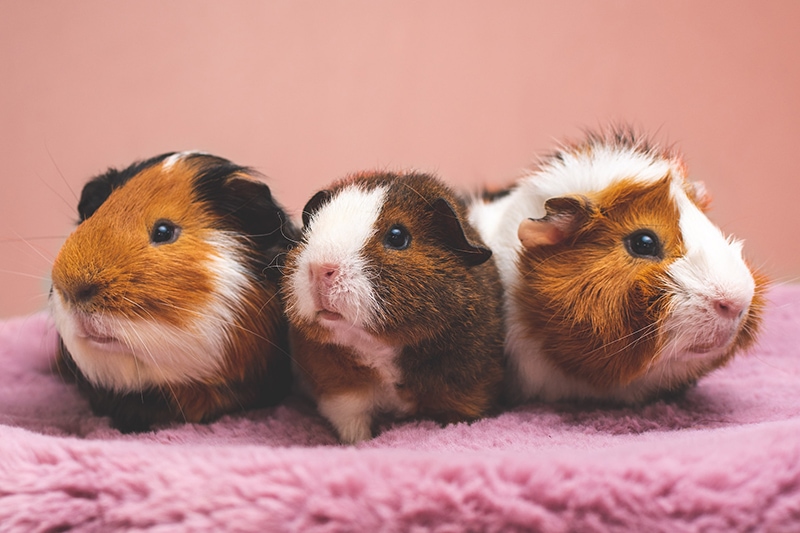
2. Avoid Extreme Conditions
Cavies do not tolerate extreme heat or extreme cold and they don’t do well in rain or snow. Generally, it is advised to keep Guinea Pigs indoors or, if they are being kept outdoors, ensure that they have an indoor area that is away from the wind and protected from rain. You may also need to add some kind of heating to keep your Piggies warm in the winter.
3. Ensure They Eat Enough Hay
As natural grazers, Guinea Pigs’ diets consist primarily of grass or hay. It might seem like a boring diet, but approximately 80% of their duet should be hay. Vegetables are fed to meet the other dietary requirements of the species and you may need to add vitamin C supplements because Guinea Pigs cannot synthesize vitamin C themselves.
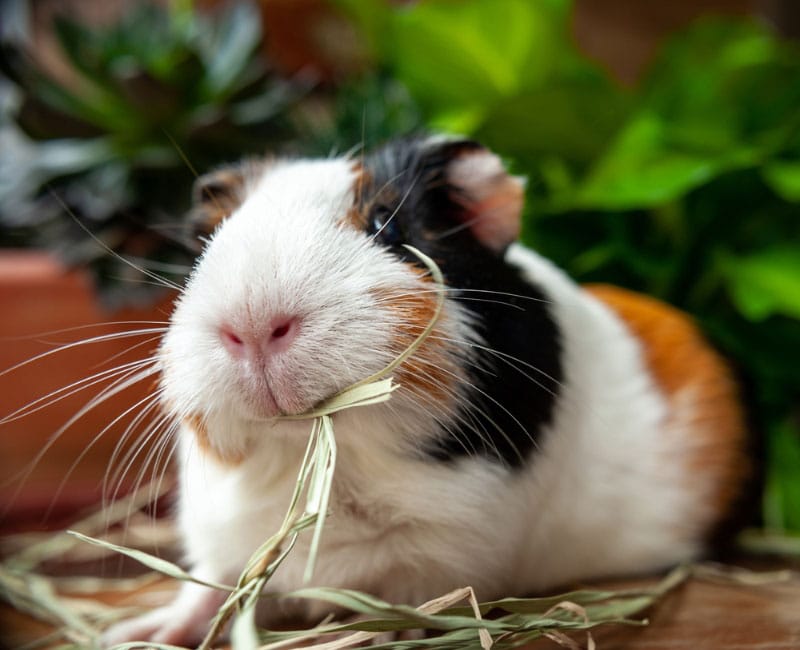
4. Check Teeth Often
As well as providing fiber, the hay or grass your Guinea Pig eats helps in another important way. Cavies grind at the food source, which helps to grind down their teeth. Guinea Pig teeth never stop growing and if yours doesn’t naturally grind its teeth down to a reasonable level, you will have to visit a vet and have the teeth cut this way.
Conclusion
Guinea Pigs make great pets. They are social, accept handling over time, and are active up to 20 hours a day, which should give you plenty of opportunity to form a close bond with your Cavie. Cavies do not have periods and if your Guinea Pig is bleeding, it is not a good sign, so you should consult a veterinarian immediately so that they can advise the best course of action.
Featured Image Credit: Pernille Westh, Shutterstock



